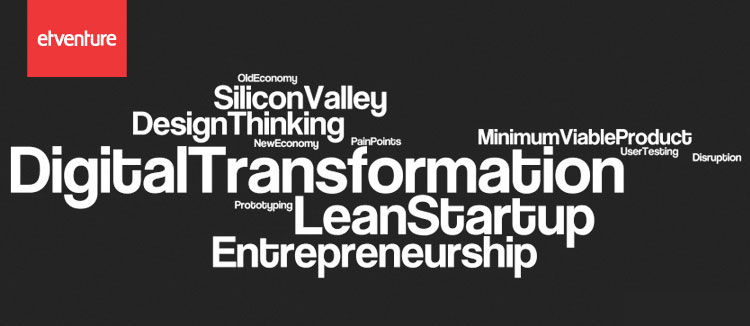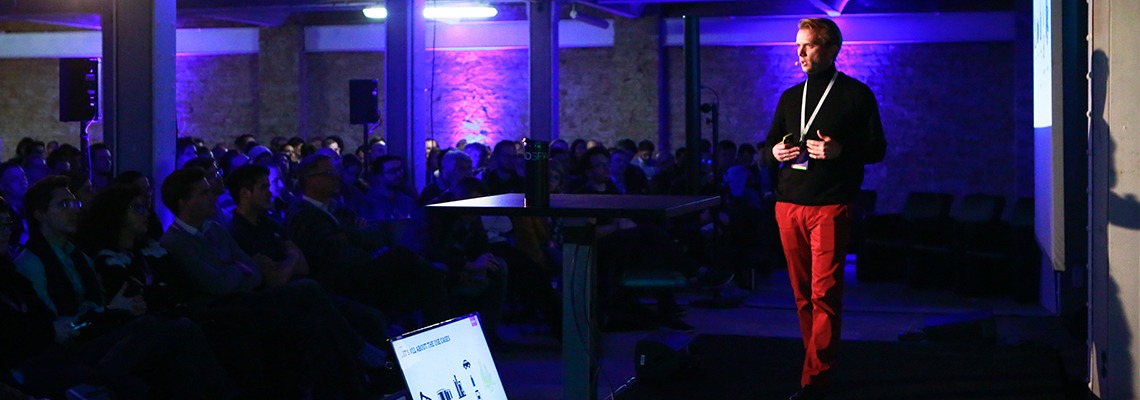Digitization and digital transformation – An overview of the most important topics of the month of January
19. January 2016
As usual at the end of the month, we take a look at the most important news and developments related to the topic of digitization. The subject matter this time: a current study on the founder country Germany, theses on the Third Industrial Revolution and the (alleged) dark side of digital transformation.
Germany is the best founder country in the world (Gründerszene)
Admittedly, this news from the Gründerszene came rather out of the blue. After all, there has been more than enough talk of the lack of innovative thinking and the startup mentality in Germany. The Global Entrepreneurship Monitor still rated Germany as the twelfth worst founder country in the world in 2014. A study conducted by the news magazine U.S. News & World Report in collaboration with the Wharton Business School and the brand consultant BAV has now reached a completely different result. According to this study, Germany is not only the “best country in the world” but also the most founder-friendly. According to the authors, the Federal Republic owes the top placing mainly to its clear legal framework conditions and good infrastructure. The educational level and qualifications of the workforce also received top marks. Points were taken off in the areas of innovation, access to capital and transparency of business practices.
The Third Industrial Revolution – future economist Rifkin: “The USA won’t be able to keep up in the future“ (Focus Online)
Humanity is facing groundbreaking changes as a result of digitization. That is the prognosis of US sociologist and economist Jeremy Rifkin in his interview with Focus Online. Shrinking levels of economic growth, increasing inequality in the population and primarily climate change are forcing us to change course. Rifkin argues that industry needs to reinvent itself. A significant factor in this is digitization, as it could increase productivity and simultaneously conserve resources. According to Rifkin, an industrial revolution is influenced by three factors: “New communication channels to manage industry, access to new sources of energy that industry can use and new forms of mobility to transport the commodities produced.” Digitization now has the same significance as the steam engine had for the first industrial revolution and electricity for the second revolution. Through the Internet of Things, all types of devices could be connected with one another, resulting in better management of economic activity. Furthermore, millions of jobs would be created by installing this “infrastructure of the future.” Due to the change in energy policy, Germany is on the right track; the USA, on the other hand, has already fallen behind due to its dependence on fossil fuels.
Millions of jobs to go (Frankfurter Allgemeine Zeitung)
Current studies view the medium-term consequences of digitization far less optimistically. According to a study which was presented at the World Economic Forum in Davos last week, up to five million jobs will be lost in industrialized countries through digitization and the use of robots in the next five years. Office and administration employees, i.e. white collar workers, are mainly affected, while automatization is already at an extremely advanced stage in the industrial sector. “According to the study, Germany has been more strongly affected by the change than other countries in Europe. And ironically women are far more at risk of losing their job than men.” Jobs in the STEM grouping (science, technology, engineering and mathematics) which still involve a low percentage of women are primarily at an advantage, while jobs in the health, energy and the financial sectors are in particular danger.
It is clear that digitization is going to lead to a change in the employment market. Nonetheless, you shouldn’t just join in the general doomsday mood being propagated by the mainstream media these days for the sake of it, says Alain Veuve, columnist at t3n. He speaks of the “business of scaremongering” and makes it clear that: “You don’t need to be an expert to recognize that technological progress is not creating more work in the medium term.” Instead of fear, it would be more appropriate to foster a sense of optimism, says Veuve. We shouldn’t worry but instead get down to work.”
First think, then click (Zeit Online)
Accordingly, it is important that the changes in the digitized working world are also reflected in the education and further training, as other skills will be required in the future. The IT professional Arno Rolf has this to say in the discussion with Zeit Online: “It is not sufficient for students to learn a programing language. They need to understand how the working world of the digital society functions.” He is unhappy that IT is decoupled from the related economic and societal developments both in schools as well as at university, as an understanding of the structures and processes of digitization is essential. Thus, there are going to be two groups of workers in the future – “one which tells a computer what to do, and one that is told what to do by a computer.” This is significant evidence that only qualifications and education can ensure professional success.”





* Required field